









The heart of the Academy is community. The Academy was created to bring educators together to support each other and the work that is our passion. We have an opportunity and calling as health professions educators to reflect upon our own identities, our structures, and our community and how we can best evolve to be diverse, equitable, and inclusive. And as we continue to grow in size (we surpassed 200 members!), how to best connect and get to know each other.
For the 2021-2022 academic year, we would like to feature the important work that the membership committee has done to transform our membership selection process to be more holistic, equitable, and to strengthen the diversity of our Academy. Secondly, to showcase the Academy meetings that focused on diversity, equity, inclusion, and antiracism and antioppression (DEIA). We focused on topics such as mentoring across differences, structural racism, courageous leadership, and faculty wellbeing to engage in antiracism/anti-oppression and decolonizing health professions education. Finally, this is a lovely opportunity to hear reflections from several of our members about their inspiration for teaching and gratitude for the educator community at UCSF.
My deepest gratitude to this amazing community that sustains my own work in so many ways. This work would not be possible without the dedication, expertise and passion of the Academy team: Karen Brent, Sally Collins, Kathleen Land, and Raquel Rodriguez-Piscitello.
Ann Ann Poncelet, MD Director and William G. Irwin Endowed Chair The Haile T. Debas Academy of Medical Educators

In 2021 the Academy Membership Committee began an evaluation and revision of its selection and recruitment processes to move toward a holistic review process consistent with the Academy’s values of community, diversity, advocacy, service, and innovation. Holistic review is an evaluation process in which experiences, attributes and metrics are weighted equally. We embarked on a two-year process in which subcommittees revised all sections of the application (teaching, mentoring, educational leadership, curriculum development, assessment), created a DEIA section, and developed rubrics for each.
Our first priorities were the application sections that are required of all applicants: teaching and DEIA. While learner feedback is important, students’ evaluation of teaching is not equivalent to student achievement and can be prone to bias. The Academy membership committee’s goal was a holistic system for evaluation of teaching that focuses on applicants’ development as teachers supported by feedback on teaching from multiple sources, demonstration of excellence using multiple outcomes, and reflection upon teaching development. We developed a rubric in which each section carries equal weight. In the teaching outcomes section, we specified four types of outcomes that can be used to demonstrate excellence: peer feedback, learner outcomes, learner feedback, and teaching accolades. Numeric outcome data is no longer required. Based on the success of the revisions and rubric for the teaching section in 2021, we similarly revised the remaining sections in 2022.

Advancing DEIA in the clinical learning environment is a priority of the Academy identified by the Academy 2025 Taskforce. In order to recruit members that share this priority and reflect the diversity of UCSF and the patients that we serve, the Membership Committee developed a new DEIA statement with input from the DEIA Committee. This section specifically asks applicants to reflect on how they have committed themselves to understanding and aiding the pursuit of social justice including DEIA in their educator roles, and how they can improve DEIA in their learning environments.
Throughout, the revision process was supported and guided by Arianne Teherani, PhD and UCSF’s Program Evaluation and Education Continuous Quality Improvement (ECQI) Team. The ECQI Team observed the membership committee meetings, conducted structured interviews with applicants and membership committee members, and gave specific feedback on strengths and areas for improvement in the new process. As part of the ECQI process we identified that all applicants do not have equal access to peer feedback and developed a Brief Teaching Observation Tool to address this. We will continue to work on providing exemplar applications, and fostering educator development, coaching, and outreach in all schools.
Erin Mathes, MD and Brian Schwartz, MD From left, Erin Mathes, MD and Brian Schwartz, MDNora Osman, a former UCSF medical student and current Director of Medical Student Education at the Brigham and Women’s Hospital and Assistant Professor at Harvard Medical School, gave an inspirational plenary talk entitled, “Teaching, Mentoring, and Making Mistakes: Anything Worth Doing is Worth Overdoing.” She used storytelling to explore supporting a growth mindset in medical education, embracing challenge and growing from the struggle.

This was followed by a wonderful workshop co-lead by Denise Connor, MD; Barbara Gottlieb, MD, MPH; and Nora Osman, MD, “The Art and Practice of Mentorship: Mentoring Across Differences.” This included a conceptual framework for understanding implicit bias and presented a model for establishing trust and emotional safety in mentoring relationships.

Guiding principles for mentorship:
1. Invest in the beginning 2. Model courage and openness 3. Be student/mentee centered 4. Respect privacy and boundaries
5. Nurture a collaborative/dyad with the mentee.
Features of good mentoring are transparency, communication, commitment, and altruism. The importance of developing trust was stressed as a key feature to successful mentoring across differences with a balance of support and challenge.
Racism is a huge roadblock to achieving health equity in the United States. Even those of us who acknowledge that racism exists can feel ill-equipped to name it or take action to address it.
For the 2021 Academy of Medical Educators Fall meeting entitled, “Incorporating Anti-Oppression Strategies to Create Structural Change,” we made progress toward dismantling this roadblock with Dr. Camara Jones as our invited speaker. Camara Phyllis Jones, MD, MPH, PhD, was the 2021-2022 UCSF Presidential Chair for Education.
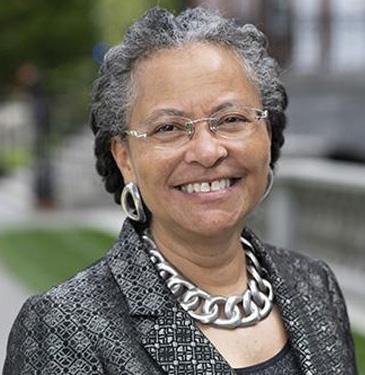
Dr. Jones aims to inspire people to engage in anti-racism by naming racism, asking how it operates in our organization, and strategizing to act. Through memorable and engaging allegories (Cement Dust in Our Lungs, Open/Closed Restaurant Sign, and The Conveyor Belt), Dr. Jones’ lecture relayed four key messages: (1) Racism exists; (2) racism is a system; (3) racism saps the strength of the whole society; and (4) we can act to dismantle racism.
The AME DEIA Committee then presented a historical perspective of the Academy DEIA Committee along with data of the UCSF faculty and staff leadership gender and race distribution. With this data and Dr. Jones’ allegories in mind, we used a case about a faculty hire to explore Dr. Jones’ Roots of Racism Denial: 1) to narrow a focus on the individual, 2) the present is disconnected from the past, 3) the myth of meritocracy, and 4) myth of the zero-sum game.
Through the faculty hiring case we explored:
• Who was in and who was out (restaurant sign allegory)?
• The impacts our current structures, norms, policies, and values have on our collective decision making.
• How the myth of meritocracy, having an a-historical perspective, and focusing on the individual over structure, impact our collective decision making.
• Identifying strategies that facilitate anti-racism, anti-oppressive hiring practices.
The session was developed by the Academy DEIA Committee in collaboration and learning with Dr. Camara Jones. Academy DEIA committee members who contributed to creating this workshop: Lead Workshop Developer: Michelle Guy; MD; Lead Staff Member: Karen Brent; Collaborators: Sarah Alba-Nguyen, MD, MPH; Kenny Banh, MD; Erica Brode, MD; Denise Connor, MD; Henry Duncan, MD; Amber Fitzsimmons, DPTSc; James Frank, MD; Megha Garg, MD, MPH; Stephanie Hsia, PharmD; Angel Kuo, RN, MSN, PNP; Katherine Lupton, MD; Anna Meyer, MD; Arianne Teherani, PhD; Larissa Thomas, MD; Glenn Rosenbluth, MD; and Heidi Werner, MD. Additional thanks to Starr Knight, MD. Thank you to the Presidential Chair committee including Anda Kuo, MD and lead staff member, Gabby Negussie-Retta.
Michelle Guy, MD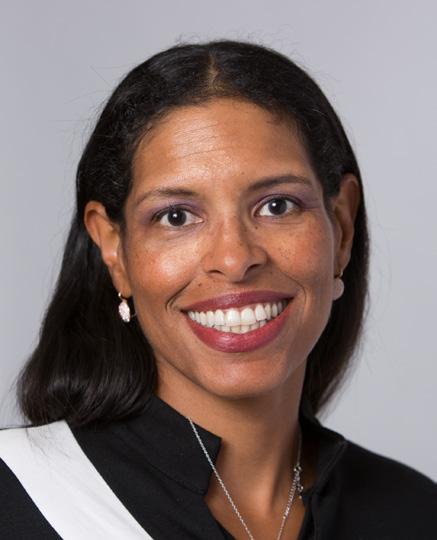

As education faculty, we are called to develop ourselves to be antiracist and to transform our teaching and learning environments to be antiracist, equitable, and welcoming for all learners. This is hard work and has been especially distressing with our students advocating for more substantial and rapid progress towards these goals, in the context of an exhausted faculty who are also carrying the pressures of the pandemic. To sustain our faculty in their wellness and growth, we dedicated our winter meetings to “Healing ourselves through reflection, reframing and courage in the face of student activism.”
The large group session included a reflective review of student curricular activism and the impact on our teaching faculty by our Vice Dean of Education Catherine Lucey followed by a focus on the impact for clinical faculty by clerkship directors Cindy Lai, MD and Matt Lin, MD. Dean Lucey presented an enlightening framework on dismantling racism and organizational change (https://www.dismantlingracism.org/) with 6 phases of change: familiar dysfunction, explicit commitment, culture shift/not knowing, relational trust, equity goals clarified, and equity practice. Next, the importance of faculty wellness in doing this work was explored through the framing of Maslow’s hierarchy of needs and cognitive load theory.
Noelle Poncelet, PhD led a Gratitude Centering Exercise adapted from a meditation from Beth Harleman and Dan Lowenstein.

Anna Meyer, MD

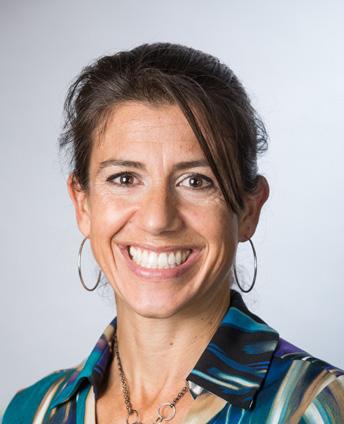
Attendees participated in a session whose objectives were to understand the role of relational trust in the pursuit of equity, reframe equity “work” in the context of building connection and community, and identify and practice skills for consciousness and relationship-building. This approach was integrated into the frame of the Six Phases of Racial Equity Practice outlined by Vice Dean Catherine Lucey. DEIA “work” was reframed as a continuous act of love that requires effort and commitment and is deeply reliant on cultural humility and relationship-building across differences. Skills for these foundational practices were presented and then applied to and practiced with real scenarios generated by the participants.
Andi Marmor, MD
Participants began by listening supportively to each other while considering the factors that most impact their wellbeing as educators. We then followed the Dismantling Racism framework to consider drivers of wellbeing in both faculty and learners during institutional change, and consider ways that wellbeing could be supported throughout this process. For the “Culture Shift” phase, participants considered how factors such as either/or thinking or expectation of change played out in their educational context and impacted their wellbeing.

For the “Relational Trust” phase, participants discussed how acknowledging chaos, building a culture of appreciation, and identifying collective power could cultivate wellbeing while advancing racial equity. Throughout the session, participants used Google Jamboards to share ideas anonymously, while the facilitators summarized themes and elevated key ideas. Some important themes that emerged included: the importance of building and rebuilding trust, finding opportunities to break down barriers between faculty and trainees to humanize both, and maintaining a growth mindset with ourselves as well as our learners.
The session was developed by a team of educators and staff, who also led facilitated small groups concentrated on cultivating courageous leadership and faculty wellbeing to advance DEIA: Karen Brent; Susannah Cornes, MD; Amber Fitzsimmons, DPTSc; James Frank, MD; Michelle Guy, MD; Cindy Lai, MD; Kewchang Lee, MD; Matt Lin, MD; Catherine Lucey, MD; Andi Marmor, MD; Anna Meyer, MD; Raquel Rodriguez-Piscitello, MBA; Glenn Rosenbluth, MD; Larissa Thomas, MD; and Heidi Werner, MD
From left, Andi Marmor, MD and Anna Meyer, MDThe annual education showcase brought together our community for another successful opportunity to share the amazing work done by our faculty, staff, and learners at UCSF. While there are many amazing highlights from the event, Dr. Thirusha Naidu presented a thought-provoking keynote on “Decolonizing Health Professions Education.” Dr. Naidu challenged us to ask the question of how has the history of and ubiquity of colonization affected the dominant narratives of health professions education as well as our health system. She helped us explore the drivers of decolonization including the diversity of our student bodies, the disconnect between lived experiences and epistemologies, and profound challenges in the health care system.
She and several colleagues ran a workshop the day after the keynote to apply a new framework to begin the process of decolonization. Many of us are considering and grappling with these questions and the ways forward. Dr. Naidu helped us come together as a community to take time as a group to reflect on ways forward.
Madhavi Dandu, MD, MPH
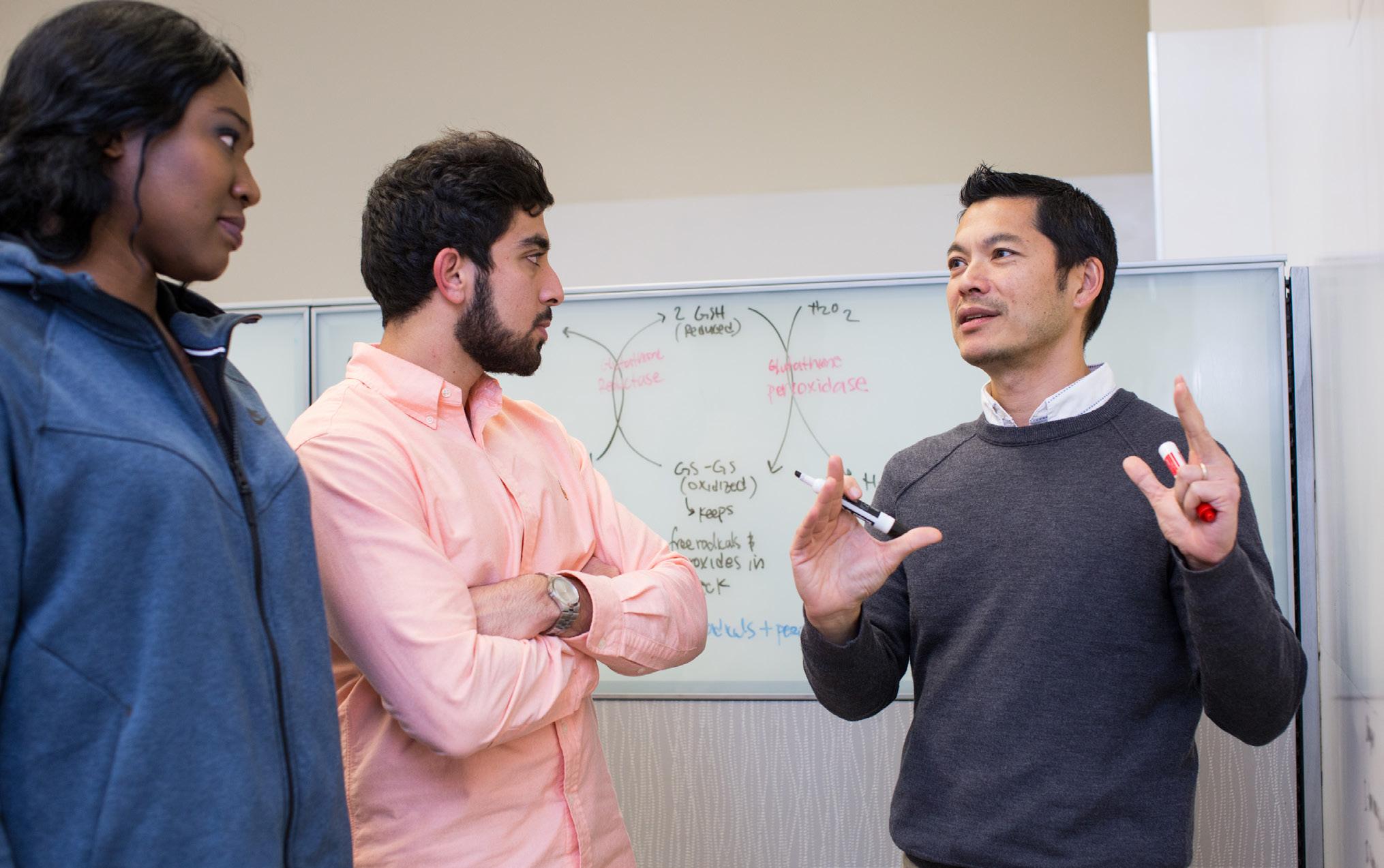

Thirusha Naidu, PhD, MClinPsych, is from the Nelson R. Mandela School of Medicine at the University of KwaZulu-Natal, South Africa. Dr. Naidu is a clinical psychologist in the Department of Behavioural Medicine at the School of Nursing and Public Health.

Even at its inception the Academy was created to provide a community space for educators to support one another and grow in their profession.
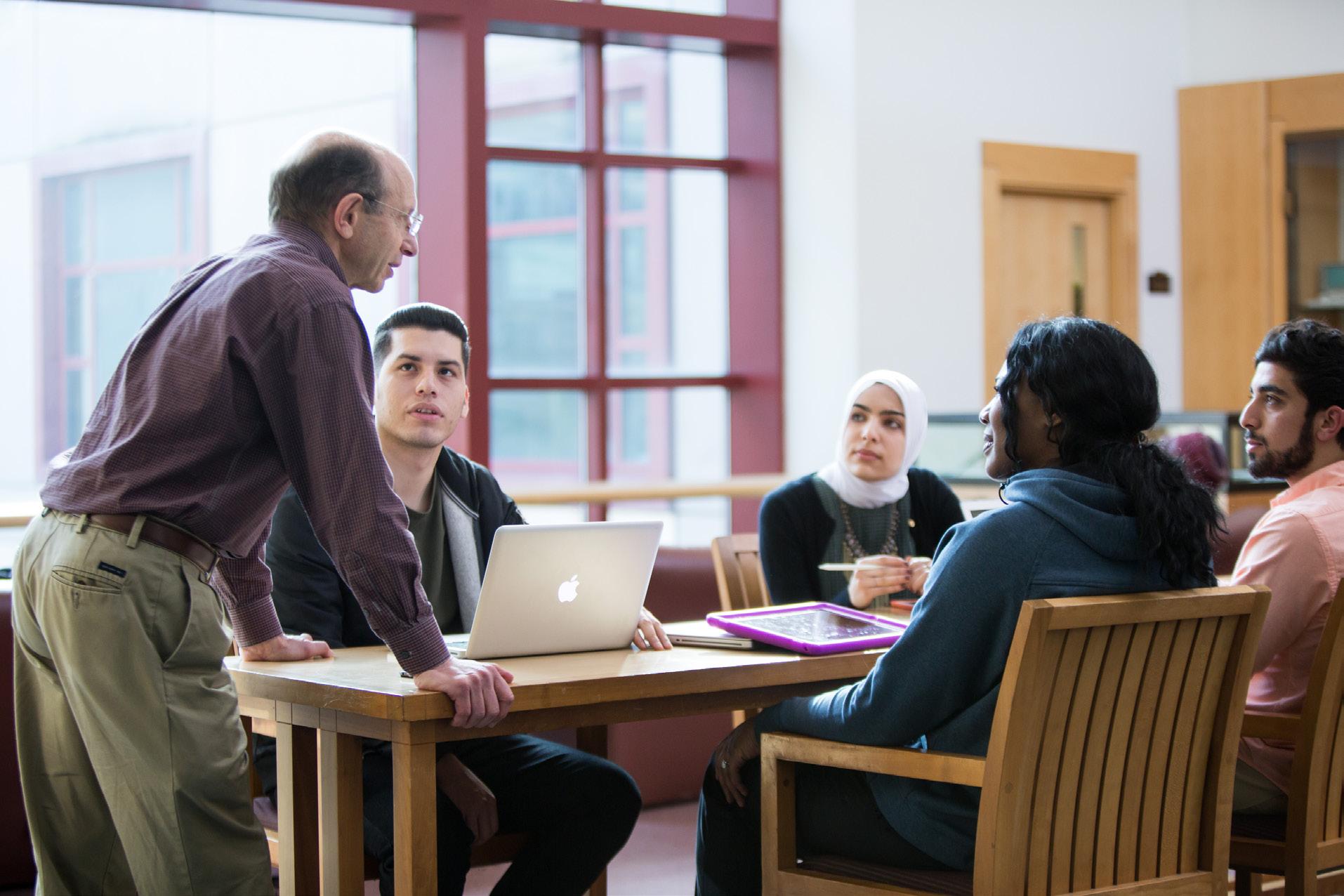
Now, twenty years later, the Academy still strives to meet educators where they are and support their growth. Despite members ranging from newer to the inaugural class of 2000, the need for community never wanes, and for those who have remained committed to the Academy’s mission, they have expressed their passion for education and gratitude for what this community provides for educators.

My passion for education emanates from the opportunity and privilege to serve as a guide for our students as they develop into healers. The combination of delving into both the art and science of medicine is nothing short of wondrous, inspiring, and sacred. Dan Lowenstein, MD
I am so impressed in how our educator community continues to support each other in making our institution a place that is continually growing and challenging ourselves. I have leaned on so many Academy members during stressful times, particularly throughout the height of the pandemic. Each conversation has left me more rejuvenated and filled with gratitude. Our community is incredibly special. Erick Hung, MD
We are so lucky at UCSF to have such a robust community of medical educators doing such a vast range of education-related activities. I feel lucky to be here at this MedEd Mecca and happy to contribute in any way I can! Lekshmi Santhosh, MD, MAEd
Working with learners energizes me daily. I get the privilege of teaching them, but also of learning from them and being challenged by them. The Academy has introduced me to so many wonderful education-focused colleagues, whom I also get to learn from and grow with. It really has made me feel part of the educational community here at UCSF. Margaret Lin-Martore, MD
The hope is that wherever you are in your Academy journey, this will make you feel that you are in a community of kindred spirits and the Academy will cultivate and nourish you at any stage of your career. In kindness and gratitude.
Karen BrentJoin us in supporting the Haile T. Debas Academy of Medical Educators (Academy) 20th Anniversary (20012021) Campaign by making a gift to endow our Innovations Funding in Education Program.
• This internal grants program is open to all faculty at UCSF and provides funding to support curricular innovation and scholarship.
• It is one of our most successful programs and has helped launch the careers of many junior faculty educators at UCSF.
• Your gifts directly benefit the Innovations Funding in Education Program.

We are establishing an endowment to support the Innovations Funding program for years to come. By raising a minimum of $100,000, we will establish an endowment to support the Innovations Funding program.
With your support, we can do so much more than we ever could alone. Your generosity advances UCSF’s teaching mission and transforms our learners who care for our patients.

Our passion is to create innovation in education that transforms the teaching and learning experience at UCSF!
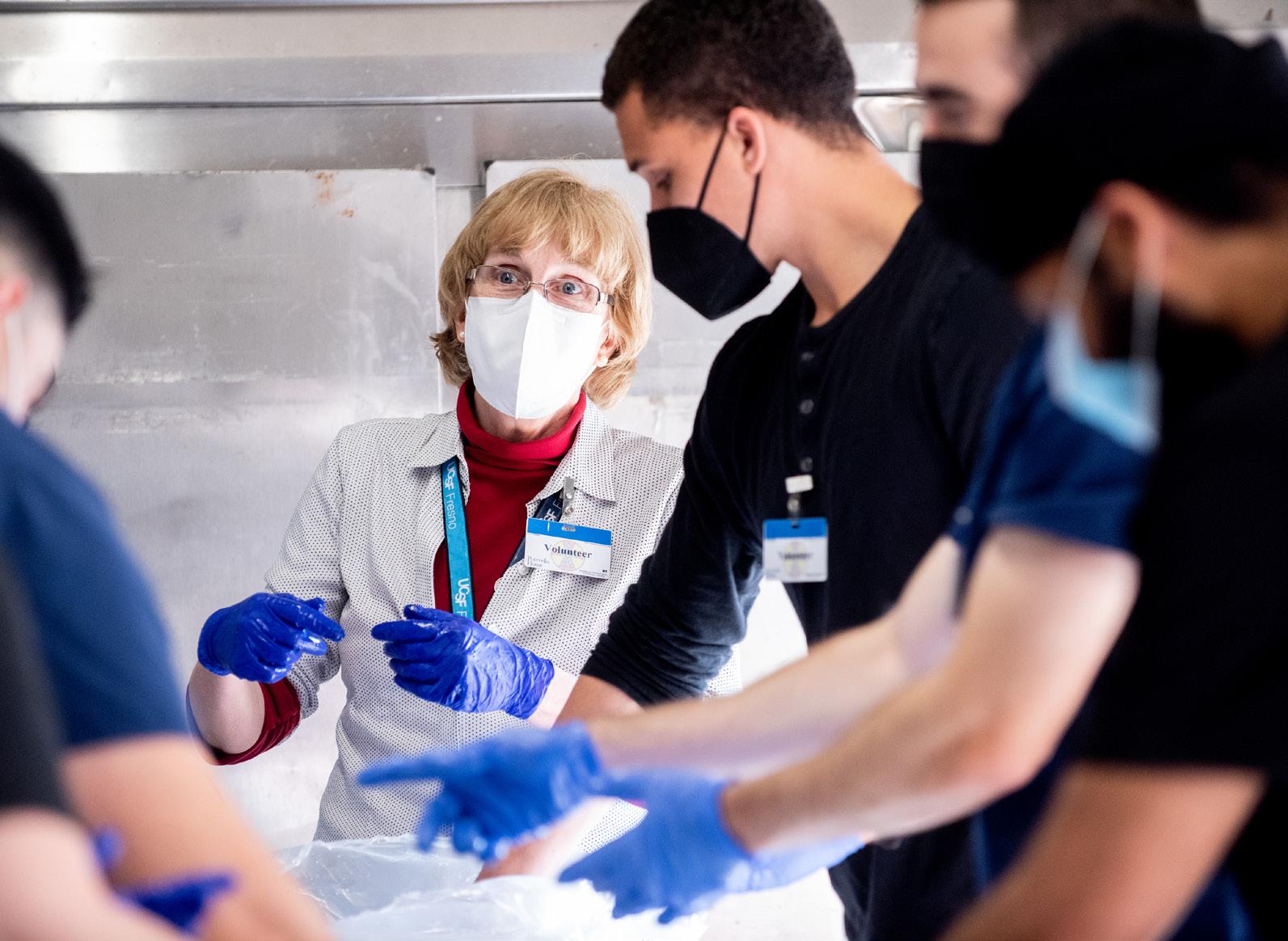




Shelley Adler, PhD
Nima Afshar, MD
Manish Aghi, MD, PhD
Loren Alving, MD
Meg Autry, MD
Amin Azzam, MD, MA
Jennifer Babik, MD, PhD
Kenny Banh, MD
Robert Baron, MD, MS
Martin Bogetz, MD
Sharya Vaughan Bourdet, PharmD, BCPS
Sara Buckelew, MD, MPH
Benjamin N. Breyer, MD, MAS
Kristine Elizabeth West Breyer, MD
Erica Christine Brode, MD, MPH
E. Alexandra Brown, MD
Marek Brzezinski, MD, PhD
Andre Campbell, MD
Lundy J. Campbell, MD
Anna Chang, MD
Jack Chase, MD
Lee-may Chen, MD
Pei Chen, MD
Rachel Chin, MD
Peter Chin-Hong, MD, MAS
Calvin Chou, MD, PhD
Daniel Ciccarone, MD, MPH
Valerie Clinard, PharmD, Aph
Denise Connor, MD*
Molly Cooke, MD
Susannah Cornes, MD*
Patricia Cornett, MD
Madhavi Dandu, MD, MPH
Robert Daroff, MD
Denise Davis, MD
Sneha Daya, MD
Gurpreet Dhaliwal, MD
Anand Dhruva, MD
Vanja Douglas, MD
Jacque Duncan, MD
David Duong, MD, MS
Odinakachukwu Ann Ehie, MD, FASA
David Elkin, MD
Archna Eniasivam, MD
Christopher Fee, MD
Mitchell Feldman, MD, MPhil
Alicia Fernandez, MD
Marla Ferschl, MD
Darren Fiore, MD*
Amber Fitzsimmons, PT, MS, DPTSc
Lynn A. Flint, MD
Shannon E. Fogh, MD
Audrey Foster-Barber, MD, PhD
James Frank, MD, MA
Tracy Fulton, PhD*
Megha Garg, MD, MPH, FACP
Amy B. Garlin, MD
Elizabeth Gatewood, DNP, RN, FNP-C, CNE
Alan Gelb, MD
Jeffrey Gelfand, MD, MAS, FAAN
Sarah Goglin, MD Andrew Goldberg, MD, MSCE, FACS
Ivan Gomez, MD, Michelle Guy, MD
Monica Ulhee Hahn, MD, MPH, MS Elizabeth Harleman, MD Michael Harper, MD Karen Hauer, MD, PhD Duncan Henry, MD
Claire Horton, MD, MPH Stephanie Lynn Hsia, PharmD Gerald Hsu, MD Erick Hung, MD* Katherine Hyland, PhD David Irby, PhD Rebecca Jackson, MD* S Andrew Josephson, MD Elizabeth Joyce, PhD Mindy Ju, MD, MAEd Katherine Julian, MD Shruti Kant, MD* Priya Kathpalia, MD Shieva Khayam-Bashi, MD Edward Kim, MD Renee Kinman, MD, PhD Abner Korn, MD Marieke Kruidering-Hall, PhD* Irina (Era) V. Kryzhanovskaya, MD Anda Kuo, MD* Angel Kuo, RN, MSN, PNP Jeannette Lager, MD, MPH Cindy Lai, MD* Harry Lampiris, MD Ryan Laponis, MD, MSci Ellen Laves, MD Phuoc Le, MD, MPH, DTM&H Lorriana Leard, MD Isabel D. Lee, MD Kewchang Lee, MD Ben C. Li, MD Descartes Li, MD Matthew Lin, MD
Margaret Jane Lin-Martore, MD Daphne Lo, MD, MAEd
Helen Loeser, MD, MSc
Catherine Lomen-Hoerth, MD, PhD Michele Long, MD Daniel Lowenstein, MD Catherine Lucey, MD
Katherine Lupton, MD, FACP
Conan MacDougall, PharmD, MAS
Solmaz Manuel, MD
Jyothi Marbin, MD
Mary E. Margaretten, MD, MAS
Marta Margeta, MD, PhD
Andrea Marmor, MD, MSEd
Alma Martinez, MD, MPH
Erin Mathes, MD
Lindsay Mazotti, MD
Meg McNamara, MD
Biftu M. Mengesha, MD MAS
Anna Meyer, MD, FACS, FAAP*
Carol Miller, MD
Lynnea Mills, MD
Igor Mitrovic, MD
Bradley Monash, MD
Jessica Muller, PhD
Andrew Murr, MD
Sirisha Narayana, MD
Heather Nye, MD, PhD
Patricia O’Sullivan, EdD*
Maxine Papadakis, MD
Manuel Pardo, Jr., MD
J. Colin Partridge, MD, MPH
Meg Pearson, MD
Alissa Peterson, MD
Michael Peterson, MD
Binh An P. Phan, MD
Steven Pletcher, MD
Ann Poncelet, MD, FAAN*
Evelyn Porter, MD, MS
Atif Qasim, MD, MSCE, FASE
Michael Rabow, MD
Raga Ramachandran, MD, PhD*
Sumant Ranji, MD
Stephanie Rennke, MD
Mehan Richie, MD
Nardine Riegels, MD
Josette Rivera, MD
Patricia Robertson, MD
Dana Rohde, PhD*
Leticia Rolon, MD
Sanziana Alina Roman, MD
Demian Rose, MD, PhD
Glenn Rosenbluth, MD
George Rutherford, MD
Emma Samelson-Jones, MD
Henry Sanchez, MD
Lekshmi Santhosh, MD, MAEd
Gabriel E. Sarah, MD
Jason Satterfield, PhD*
George Sawaya, MD
Stacy Sawtelle Vohra, MD
Sarah Schaeffer, MD, MPH
Nicole Schroeder, MD* Brian Schwartz, MD Andreea Seritan, MD Justin Sewell, MD, MPH Bradley Sharpe, MD Wen T. Shen, MD, MA Leslie Sheu, MD Jaekyu Shin, PharmD Kanade Shinkai, MD, PhD* William Shore, MD Rebecca Shunk, MD William Shyy, MD, FACEP Wade Smith, MD, PhD Jody Steinauer, MD Geoffrey Stetson, MD Chris Stewart, MD Joseph Sullivan, MD Kristina Sullivan, MD* Miranda Surjadi, RN, MS, ANP-BC Jeffrey Tabas, MD Sonny T. Tat, MD, MPH Arianne Teherani, PhD Larissa Thomas, MD, MPH* Vanessa Thompson, MD Lowell Tong, MD
Paul Alexander Toogood, MD, MS Kimberly Topp, PT, PhD, FAAA Amanda R. Twigg, MD Ram Vaderhobli, DDS, MS Sandrijn van Schaik, MD, PhD Margo Vener, MD, MPH Maria Wamsley, MD Emily Webb, MD* Lori Weichenthal, MD Heidi Werner, MD, MSHPEd Daniel J. Wheeler, MD Heather Alanna Whelan, MD, MSc Sara Whetstone, MD, MHS Lisa Winston, MD Susan Wlodarczyk, MD Naomi Wortis, MD* Pinelopi Xenoudi, DDS, MS Serena Yang, MD, MPH Sharon Youmans, PharmD, MPH Lydia Zablotska, MD, PhD, MPA* Josué A. Zapata, MD, MBA Crystal Zhou, PharmD Leslie Zimmerman, MD Tali Ziv, MD
*Endowed Chairs
Ann Poncelet, MD, Director
Raquel Rodriguez-Piscitello, Director, Center for Faculty Educators
Kathleen Land, Program Manager
Karen Brent, Communications Analyst
meded.ucsf.edu/haile-t-debas-academy-medical-educators
